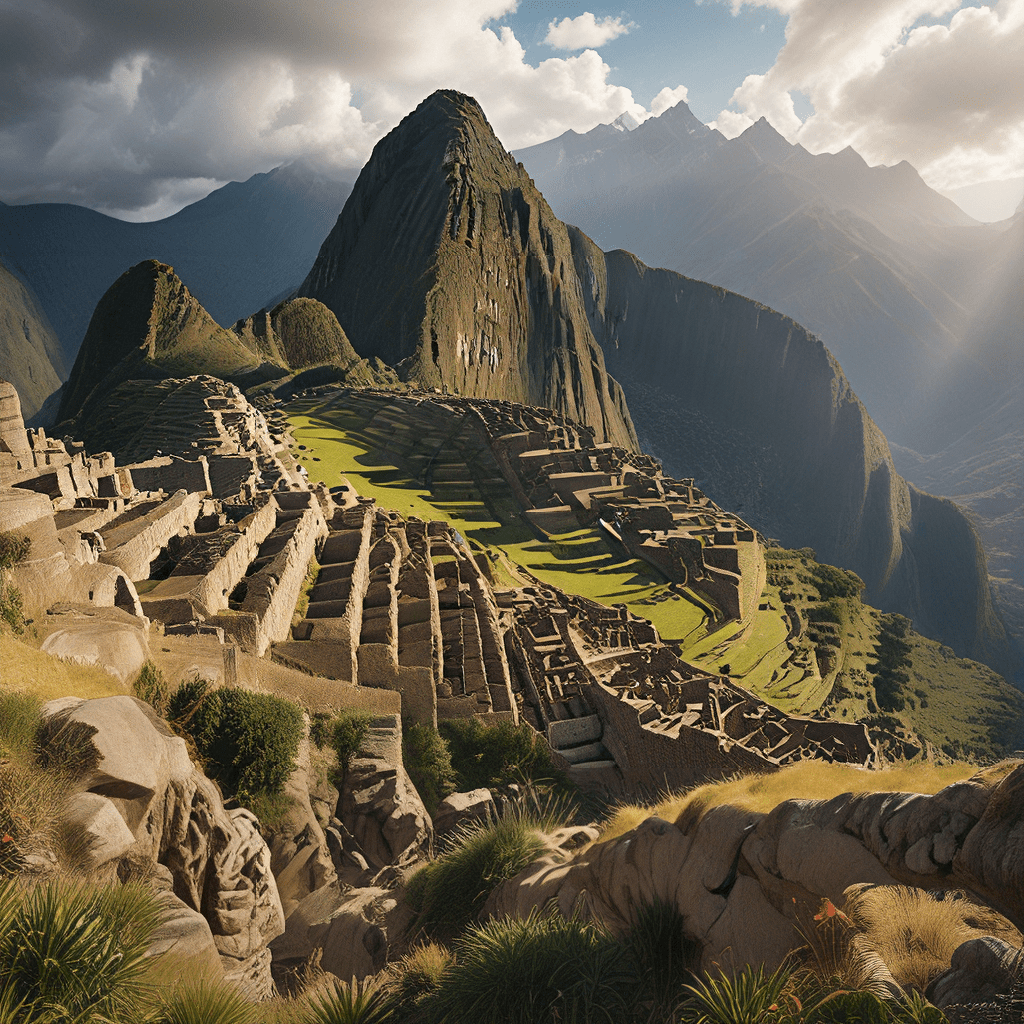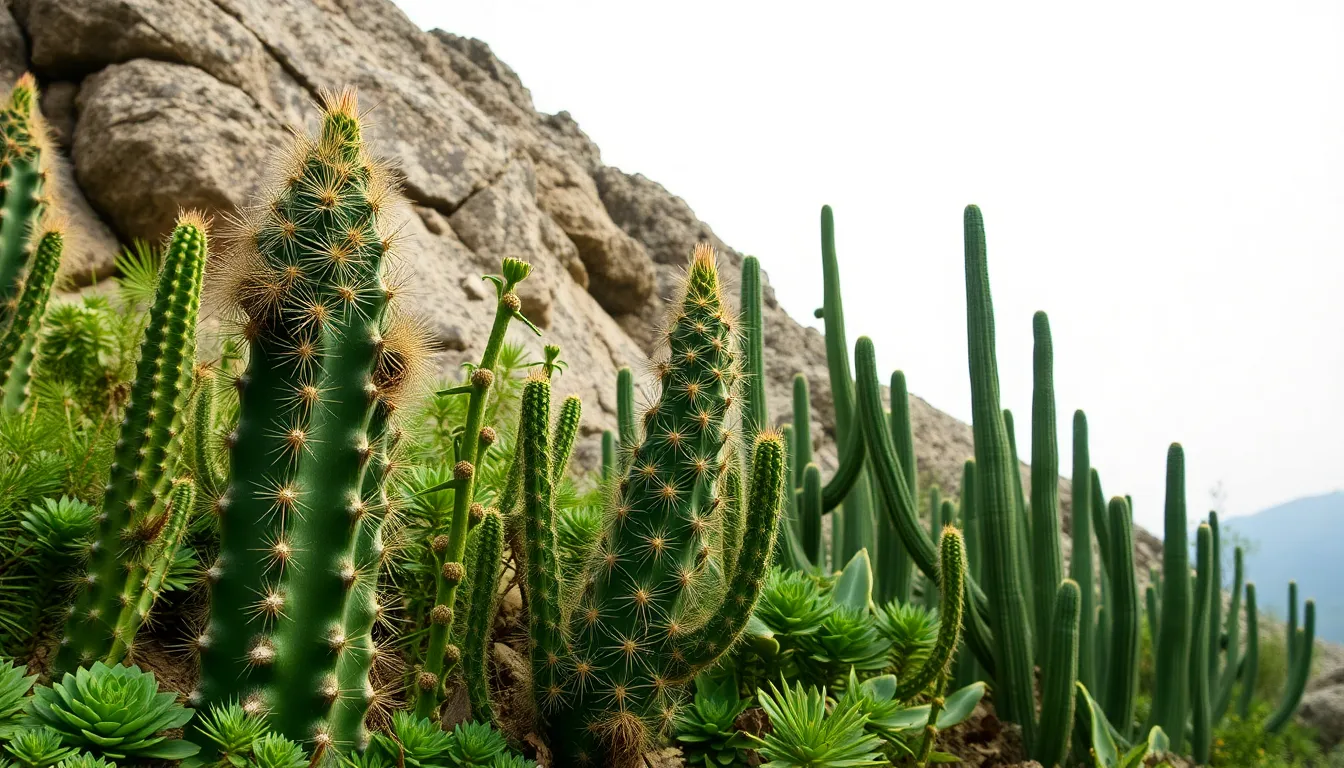Incan Mythical Agriculture: Cultivating the Land with Gods’ Blessings
The Incan civilization, renowned for its sophisticated agricultural practices, held a profound belief in the power of the divine. Their agriculture was intertwined with mythology, where the land, sun, and water were viewed as sacred elements, embodying the presence of powerful deities. This intricate web of belief and practice shaped the Incan worldview, guiding their agricultural practices and ensuring the very survival of their society.
The Pachamama: Mother Earth and the Source of Life
At the heart of Incan mythology lies Pachamama, the Earth Mother. Pachamama is revered as the source of all life, nurturing the plants and animals that sustain the Incan people. She is the embodiment of the fertile land, providing sustenance and abundance. The Incas believed that Pachamama was both benevolent and demanding, requiring respect and offerings in return for her blessings. They believed that through rituals and sacrifices, they could appease her and ensure a bountiful harvest.
Inti, the Sun God: Provider of Light and Life-Giving Energy
Inti, the Sun God, plays a crucial role in Incan agriculture. He is the source of light and warmth, essential for the growth of crops. The Incas saw Inti as a powerful deity, responsible for the changing seasons and the cycle of life and death. They believed that his energy flowed through the earth, nourishing the plants and providing for the needs of the people. Inti's influence was evident in their agricultural calendar, which was closely aligned with the solar year.
Viracocha, the Creator God: Shaping the Land and Establishing Order
Viracocha, a powerful creator god, is believed to have shaped the landscape and established order in the world. He is credited with creating the mountains, rivers, and valleys that form the Incan homeland. The Incas saw Viracocha as a benevolent deity who had given them the land and bestowed upon them the knowledge of agriculture. They believed that he watched over them and continued to provide for their needs, ensuring their prosperity.
The Sacred Landscape: Mountains, Rivers, and the Incan Worldview
The Incan landscape held deep spiritual significance. Mountains were considered sacred places, home to powerful deities and spirits. Rivers, flowing with life-giving water, were also revered. They believed that these natural features were manifestations of the divine, representing the interconnectedness of the world. The Incas understood that the land, along with its mountains, rivers, and valleys, was a precious gift from the gods, entrusted to their care.
Agricultural Practices as Ritual: Seeking Divine Favor
Incan agriculture was not merely a practical activity; it was deeply intertwined with ritual. Every step, from planting to harvesting, was infused with religious meaning. Farmers would offer prayers and sacrifices to the gods, seeking their blessings for a bountiful harvest. They believed that by honoring the divine, they could ensure the fertility of the land and their own well-being.
The Role of Sacrifice: Appeasement and Gratitude to the Gods
The Incas believed that the gods demanded respect and offerings in return for their blessings. They would perform sacrifices, offering precious items like food, animals, or even human lives to appease the deities. These sacrifices were intended to demonstrate their devotion and gratitude to the gods, ensuring their continued favor. For example, a popular offering to the Pachamama was coca leaves. Farmers would leave these leaves strewn across the fields, believing that it would ensure a healthy harvest. This practice reflects the importance of maintaining a respectful relationship with the divine, a key principle in Incan mythology.
The Myth of the First Maize: A Divine Gift and the Basis of Incan Society
Maize, a staple crop in the Incan diet, played a central role in their mythology. The story of the first maize is a testament to the gods' generosity and their commitment to providing for the Incan people. According to legend, Viracocha created maize from a golden ear, gifting it to the Incan people as a sign of his favor. The Incas believed that maize was a sacred gift, representing abundance and prosperity. Its cultivation became a central part of their society, forming the foundation of their agricultural system and sustaining their way of life.
The Importance of Water Management: Reflecting Cosmic Balance
Water played a crucial role in Incan agriculture and their mythology. They viewed the flow of water in rivers and canals as a reflection of the cosmic balance, mirroring the cyclical nature of life. The Incas developed intricate irrigation systems to ensure a reliable water supply for their crops. They also believed that water had spiritual significance, connecting the human world to the divine. Their practices of water management were not just practical; they embodied a deep respect for the sacred nature of water and its vital role in the cycle of life.
Theories on the Influence of Mythology on Incan Agricultural Practices
The Incan belief in divine intervention had a profound impact on their agricultural practices. Their mythology provided a framework for understanding the natural world, encouraging them to approach agriculture with reverence and respect. Scholars believe that the Incan worldview, infused with mythology, influenced their sophisticated understanding of the environment, shaping their agricultural techniques. This included their ability to adapt to varying climates and terrains, using techniques like terracing and irrigation to maximize their agricultural potential.
The Legacy of Incan Mythical Agriculture: Modern-Day Practices and Beliefs
The legacy of Incan mythical agriculture lives on in the practices and beliefs of modern-day communities in the Andes region. People in these regions continue to hold a deep respect for the Pachamama, acknowledging her role as the source of life. They also maintain traditional agricultural techniques, reflecting a profound understanding of the land and its resources. The Incan heritage of viewing agriculture as a sacred practice, intertwined with belief in the divine, continues to inspire and shape their approach to farming.
FAQ
What are some of the key gods in Incan mythology?
Incan mythology features many powerful deities, including:
- Pachamama (Earth Mother)
- Inti (Sun God)
- Viracocha (Creator God)
What role does sacrifice play in Incan culture?
Sacrifices played a crucial role in Incan culture, demonstrating devotion and seeking favor from the gods. Offerings included food, animals, and sometimes even human lives.
How did the Incas manage water resources?
The Incas developed intricate irrigation systems to ensure a reliable water supply for their crops. They also believed that water had spiritual significance, connecting the human world to the divine.
What evidence suggests that Inca mythology influenced agricultural practices?
The Incan worldview, infused with mythology, shaped their agricultural techniques. They possessed a sophisticated understanding of the environment due to their belief in the gods and their influence on the natural world.
What are some modern-day practices that reflect the legacy of Incan mythical agriculture?
Modern-day Andean communities continue to hold a deep respect for the Pachamama and maintain traditional agricultural techniques, reflecting a profound understanding of the land and its resources.



